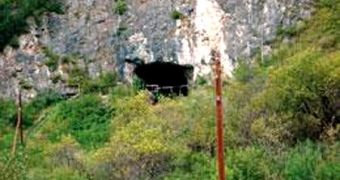Not two years ago, as they were digging around in a Siberian cave, researchers from the Russian Federation came across a bone fragment that appeared to belong to a human. Assuming that the remain was from a Neanderthalian ancestor, the team put the bone shard away for storage. They had every reason to do so. The area was known to have been inhabited by the Neanderthal man, between 30,000 and 48,000 years ago, and so everyone thought that the bone was from one of these individuals. But the genetic analysis a German team conducted on the remains told a different story.
In fact, the story was so different that it left everyone astounded. The genetic material did not match that of the Neanderthal man, or that of Homo sapiens, who were also known to have lived nearby about the same time. Rather, the DNA fragments recovered appear to indicate that the bone belongs to a yet-unknown species of humans, that migrated out of Africa a long time before any of our more modern ancestors did, Nature News reports. Details of the amazing finding are published in the latest issue of the esteemed scientific journal Nature.
“This really surpassed our hopes. I almost could not believe it. It sounded too fantastic to be true,” says Svante Paabo, who holds an appointment at the Leipzig, Germany-based Max Planck Institute for Evolutionary Anthropology. He is also the director of evolutionary genetics at the institute, and the senior author of the new investigation, which was conducted by an international team of scientists. A number of other researchers said that the finding was astounding, but added that extra precautions should be taken in establishing the finding of a new species. They are basically saying that only a bone shard is insufficient to reach this conclusion.
“With the data in hand, you cannot claim the discovery of a new species,” says the director of the University of Copenhagen Center for Geogenetics, Eske Willerslev. However, the expert, who is also an evolutionary biologist, adds his congratulations to that of others for the amazing possibility discovered by the MPI team. The fossilized bone fragment was found at a location known as Denisova Cave, a Siberian site in the Altai Mountains. Numerous artifacts from various epochs have been found here, and the location is well-known by archaeologists and anthropologists.

 14 DAY TRIAL //
14 DAY TRIAL //